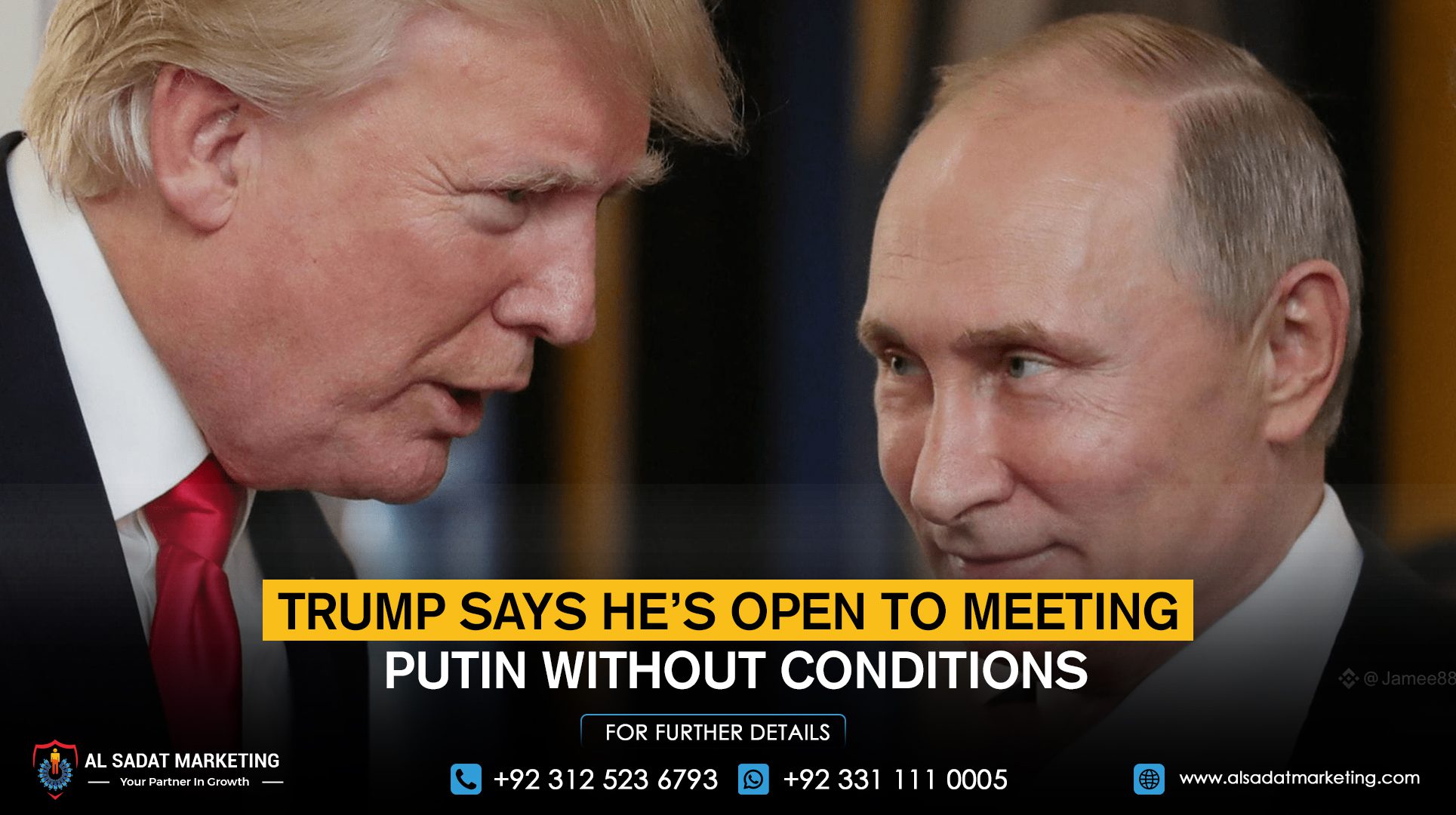President Donald Trump has said that Russian President Vladimir Putin does not need to meet Ukrainian President Volodymyr Zelenskyy before Trump’s own planned summit with Putin. Speaking in the Oval Office, Trump confirmed that the meeting with Putin could move forward without any prior talks between the Russian and Ukrainian leaders.
The statement marks a shift from earlier White House signals that suggested Trump wanted both Putin and Zelenskyy to meet as part of efforts to end the Ukraine war. White House press secretary Karoline Leavitt had earlier said Trump preferred speaking to both leaders to work toward peace.
In Moscow, Putin’s foreign policy aide Yury Ushakov confirmed that the Kremlin had agreed in principle to a bilateral meeting with Trump “in the coming days,” following a U.S. proposal. While Russia ruled out an immediate three-way meeting with Ukraine, Putin said a meeting with Zelenskyy could happen in the future under the right conditions.
Trump has repeatedly claimed he could end the Ukraine war within 24 hours, but the upcoming talks highlight the complexity of the situation. His envoy, Steve Witkoff, recently held discussions in Moscow with Putin and key Russian officials to prepare for the summit, which could take place in the United Arab Emirates.
The talks face major challenges as Russia continues to demand Ukraine’s demilitarization and rejection of NATO membership, conditions Kyiv and Western allies have rejected. Meanwhile, Trump is also increasing economic pressure on Russia, with new sanctions set to begin Friday. These include a 100% secondary tariff on countries buying Russian goods, mainly targeting China, and a 25% tariff on Indian products over its Russian oil purchases.
Zelenskyy responded by saying Ukraine is open to all discussions aimed at ending the war, but stressed that his country should not be excluded from decisions about its future. He has previously criticized talks between the U.S. and Russia that did not involve Ukraine.
The Trump-Putin summit could be a turning point in the war, but whether it leads to real progress or simply reshapes diplomatic alignments remains uncertain.










